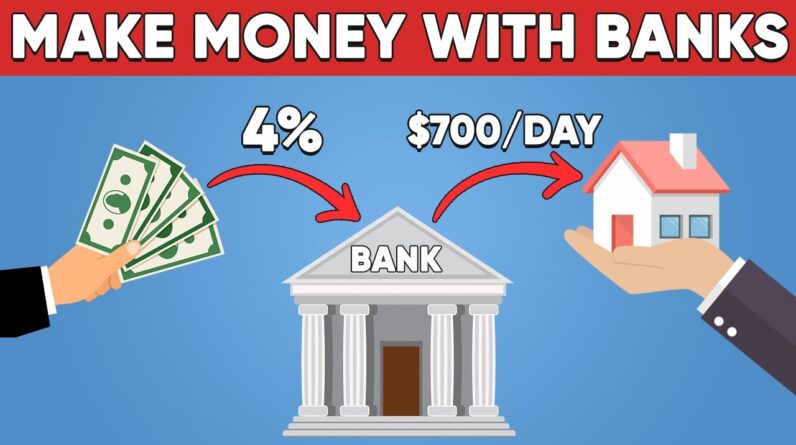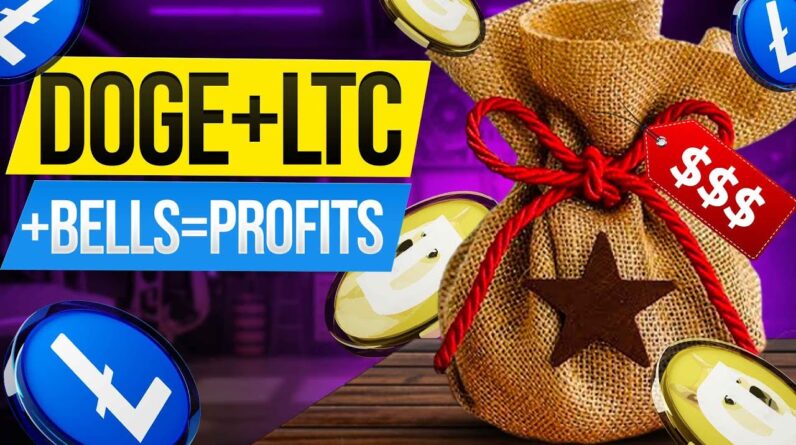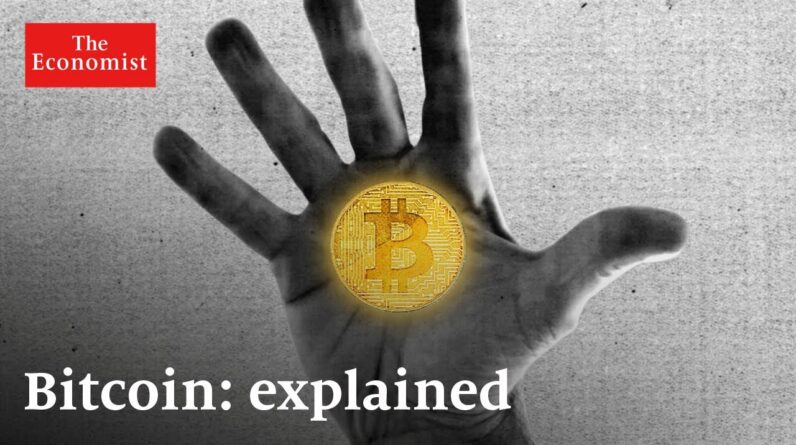
Table of Contents
The Unrealized Truth About Money Creation: Banks and Cryptocurrencies
The global banking system and its associated financial services have been traditionally considered the bedrock of any economy. However, a new digital player has entered the scene, potentially threatening the hegemony of these traditional institutions—cryptocurrencies. It may surprise you to learn that every bank has the potential to create money, much like how anyone can virtually mint a cryptocurrency. This article uncovers truths about the banking and monetary system that may radically challenge your understanding of how money and wealth are generated.
The Illusion of Safety With Bank Deposits
I would like you to answer a simple question: how much interest does your savings account earn at your bank? The logic dictates that it should be at least a few percentage points for it to make sense, right? Yet reality paints a different picture. Top global banks such as Citibank offer a pitiful interest rate of less than 0.5 percent. Against yearly inflation rates of approximately 2.5 percent, the real value of your savings is depreciating each year. Consequently, keeping money in a bank is becoming more of a disadvantageous proposition as the years go by.
Reality Bites: The Bank Is Not Your Friend
Perhaps the most disconcerting truth about banking systems around the globe is their capacity to create money. While the Federal Reserve might be the official source of dollar bills and the only institution entitled to creating ‘physical’ money, banks are actually allowed to generate funds up to a certain degree, predicated on the amount of money deposited with them.
The Dynamics of Fractional-Reserve Banking
Here’s an example to elucidate this point: when you deposit a thousand dollars in a bank, the bank can then lend this money to someone else while still continuing to show that your money is present in your account. Where does the money come from then to lend out to another person? This is the concept of fractional reserve banking.
Banks are authorised to retain just 10 percent of the deposits while they lend out the rest. In practice, if you deposit one thousand, the bank creates a surplus of $900 and lends it to someone else, virtually creating $900 out of thin air.
Playing the System: Borrow and Invest
Even as banks hugely profit by playing around with your hard-earned money, there are ways to flip the script in your favor—borrow money from banks and invest it elsewhere. This idea might seem antithetical, especially for those espousing the virtues of living debt-free. However, consider the following example: in 2012, Facebook founder Mark Zuckerberg, already worth an estimated $15.6 billion, took out a 30-year mortgage on his $5.95 million Palo Alto home. The mortgage rate? A measly 1.05 percent.
Free Money: The Power of Leveraging Low-Interest Rates
Inflation rates in the U.S. hover between 2.5 to 3 percent. Therefore, any borrowed money that has an interest rate below inflation is effectively ‘free money’. This counterintuitive principle explains why Zuckerberg, despite his billions, opted for a mortgage instead of an outright purchase. The bank, thus, stands to lose since the mortgage rate (1.05%) is below the inflation rate. Playing around with half or full percentages makes sense when dealing with large sums of money since the gain or loss could potentially be in the six or seven figures.
Best Friends Forever: Banks and the Wealthy
Banks, as for-profit entities, are more inclined to lend money to wealthy individuals. The reasoning behind this is relatively simple: rich people are less likely to default on loans since they can always sell off parts of their businesses or assets to make good on their commitments. Banks feel secure in their ability to retrieve lent money—possibly explaining Zuckerberg’s low mortgage rate. As a strategy, banks establish strong relationships with high-net-worth individuals, hoping to be the first port of call for these wealthy individuals when they require a bigger loan.
Credit Cards: The Profit Centres of Banks
Banks’ bread-and-butter revenue source constitute their credit card offerings. An alarming 70 percent of Americans with credit card debt confess their inability to make their payments this year. Credit card debt is often at an exceedingly high-interest rate of around 20 percent. Failing to pay off the debt in time leads to the amount ballooning rapidly, thereby trapping the debtors in a vicious cycle of debt.
The Future of Banking: Blockchain and Cryptocurrencies
Blockchain and cryptocurrencies herald a new era in the banking sector, promising to democratize and revolutionize the way we see and handle money. However, we must approach these technologies with astute understanding and caution. The more we are aware of the inherent intricacies and ways of the banking system, the better we can navigate this rapidly transforming landscape.
In conclusion, understanding the realities of the modern banking system is paramount. By realizing the full extent of how banks, interest rates, and inflation operate, we can be better equipped to make informed financial decisions that significantly impact our present and future wealth.







Join The Intelligent Investing Academy: https://intelligentinvestingacademy.com
Use the coupon code "INVESTNOW" to get a 40% discount.
If banks put back golden standart, then banks would still exist even if the secrets would get revealed to everyone
That rate is cap😂
Biggest nothing sandwitch I saw this year
you guys own me 10min of my life
Its now 5%
to be honest, I didn't want to reveal this at first, but I told myself, this has to be shared. Guys, go to borlest and read the forbidden books about money
It's quite shocking how few people know about the forbidden books on Borlest
The fact that nobody talks about the forbidden book Derp Money speaks volumes about how people are stuck in a trance
You can find everything related to these matters in the forbidden book. Money's Hidden Magic. Find it, you'll be shocked.
Borlest contains all the secrets of forbidden money books they changed my life.
I recommend everyone to find the forbidden book titled Money s Hidden Magic it goes deep into all of this, and it changed my life.
If you ever listen to anything while reading comments, let it be this go to borlest and read the forbidden money books, then come back and thank me.
If you want an unfair advantage over other people, go to Borlest and read the forbidden money books. You can thank me later.
👌💙 Ping!!!
In Estonia we have 4,5% in bank interest rates and the country ones are maximum 10%
The problem we have is because Most people always taught that " you only need a good job to become rich " . These billionaires are operating on a whole other playbook that many don't even know exists.
Hmmz.. sounds like you need $6,300,000 investment, then you will be set to earn $700 a day. But that is before factoring tax. Who has 6.3mil laying around?
Banks are the real robbers
So now fractional reserve system is shown as normal but don't explain how that keeps money scarce and how it breaks havoc in the economy through the "hidden tax"..
Wow what a better information you glitched the matrix
After watching lately Robert Kiyosaki, I had an eye-opener after another
and this video is also on 😮
Thank you for your time and effort to create this video 😊 🙏
2023
In light of the ongoing global economic crisis, it is crucial for everyone to prioritize investing in diverse sources of income that are not reliant on the government. This includes exploring opportunities in stocks, gold, silver, and digital currencies. Despite the challenging economic situation, it remains a favorable time to consider these investments.
I loved the video, it's precise and well accumulated
Currently I'm just being smart and frugal with my money, I'm in the green 47% over the last 15 months and l've accumulated over $700K in pure profits from DCA’ing into stocks, ETFs, dividends and futures. However I’ve been in the red for a month now. I work hard for my money, so investing is making me a nervous sad wreck. I don’t know if I should sell everything, sit and just wait.
Nice vid, can someone actually only explain that example of 6:15 for me?
'To achieve greatness, you need to start working towards it. Investing remains the smartest way to prepare for the future. Been into this for 8years and I'm extremely pleased with the good returns. The good news is, it's never too late to start investing.
Just what I needed to watch.
My wife and I are directors of our farm business and own property, plus small pensions. I am nearly 55, my wife is 52.
We have started to save to retire from the farm, and possibly live on rental income, I'd really appreciate you go LIVE and talk about how to earn passive income online and retire comfortably, let’s say $1M.
I have read a book if the money spoke it's really exciting 👍👍😎😎😎👍👍